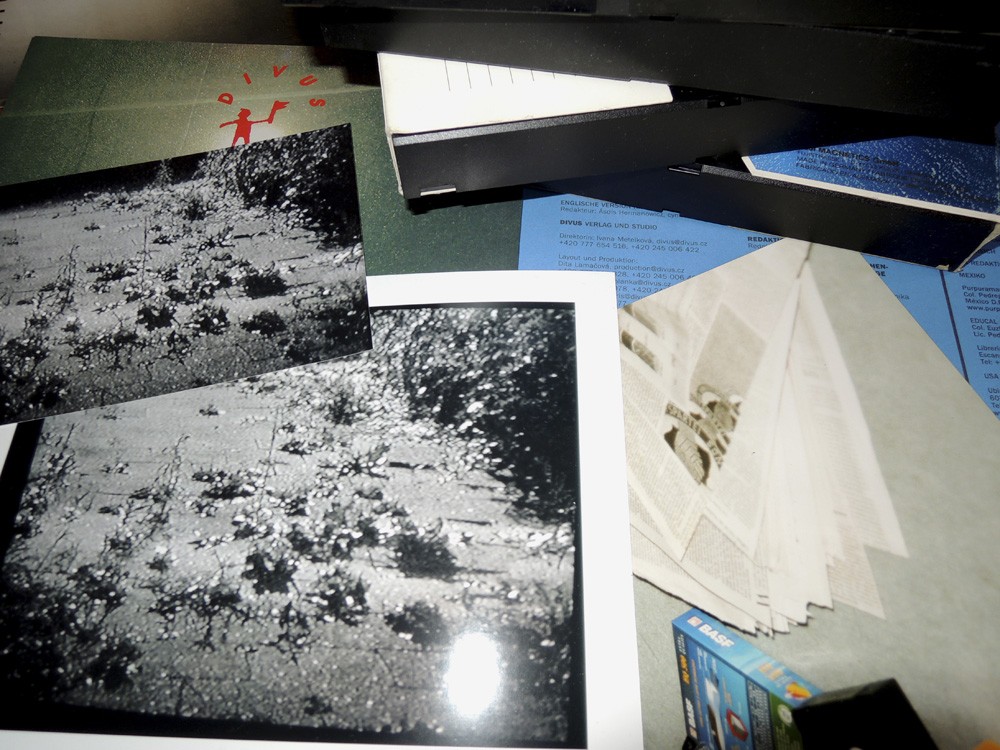
25.04.2013 18:00:00 - 08.06.2013
In her video essay Eine Anleitung, um die Vergangenheit zu ändern (A Manual for Changing the Past, 2011, 40 min.) Antje Engelmann (1980 / Berlin) recounts her family’s personal history against the backdrop of the disappearing culture of the Danube Swabians. A philosophical, experimental and humorous film about belonging to a small cultural group during the postmodern era.
The starting point for Beate Engl’s (1973 / Munich) video is the classic 1958 horror film The Blob, in which a man-eating jelly-like substance from outer space inexorably grows and expands. In Blobmachine (2009, 7h), we see a foamy red substance emerge from a white museum pedestal and spread through the gallery space before slowly congealing into a sculpture.
In her video Palais Modern (2006, 8 min.), Daniela Lehmann Carrasco(1967 / Santiago de Chile) shows an external view of a typical downtown office building from the 1970s that is slated for demolition. The alienating and nearly static video image offers a strange testimony to the building’s uncertain final state. On the one hand, it looks like a lifeless ruin; on the other, this late-modern monstrosity unexpectedly becomes a beautiful ornament.
Christine Lemke (1970 / Berlin) places a snapshot from her family album at the center of her text-and-image installation Die Verschwörung der Augen (The Conspiracy of the Eyes, 2011), and lets her abstract poetic text circle around it. The text links the private moment of the snapshot with reflections on the medium of photography and events buried deep in Germany’s collective memory – the “German Autumn” of 1977, the year in which the picture was taken.
Artist Matthias Mayer (1967 / Berlin) stored the contacts he collected during two years working in New York from 1996 to 1998 on an electronic organizer. Back in Germany following his internship, Mayer filmed the contacts from his organizer’s display – to the rhythm of a lullaby by Johannes Brahms. The title Waiting for Li (2001, 3:55 min.) is a reference to the birth of his first child.
Oliver Pietsch (1972 / Berlin) works with found footage from feature films, which he combines into film collages. The Shape of Things (2008, 18 min.) explores dreams and their representation in film. We go to the movies in order to dream with open eyes, says the famous piece of cinematic wisdom. The video focuses on the conventions and patterns that these dreams and desires follow on the visual level.
The participating artists were invited by Christine Lemke and Oliver Pietsch